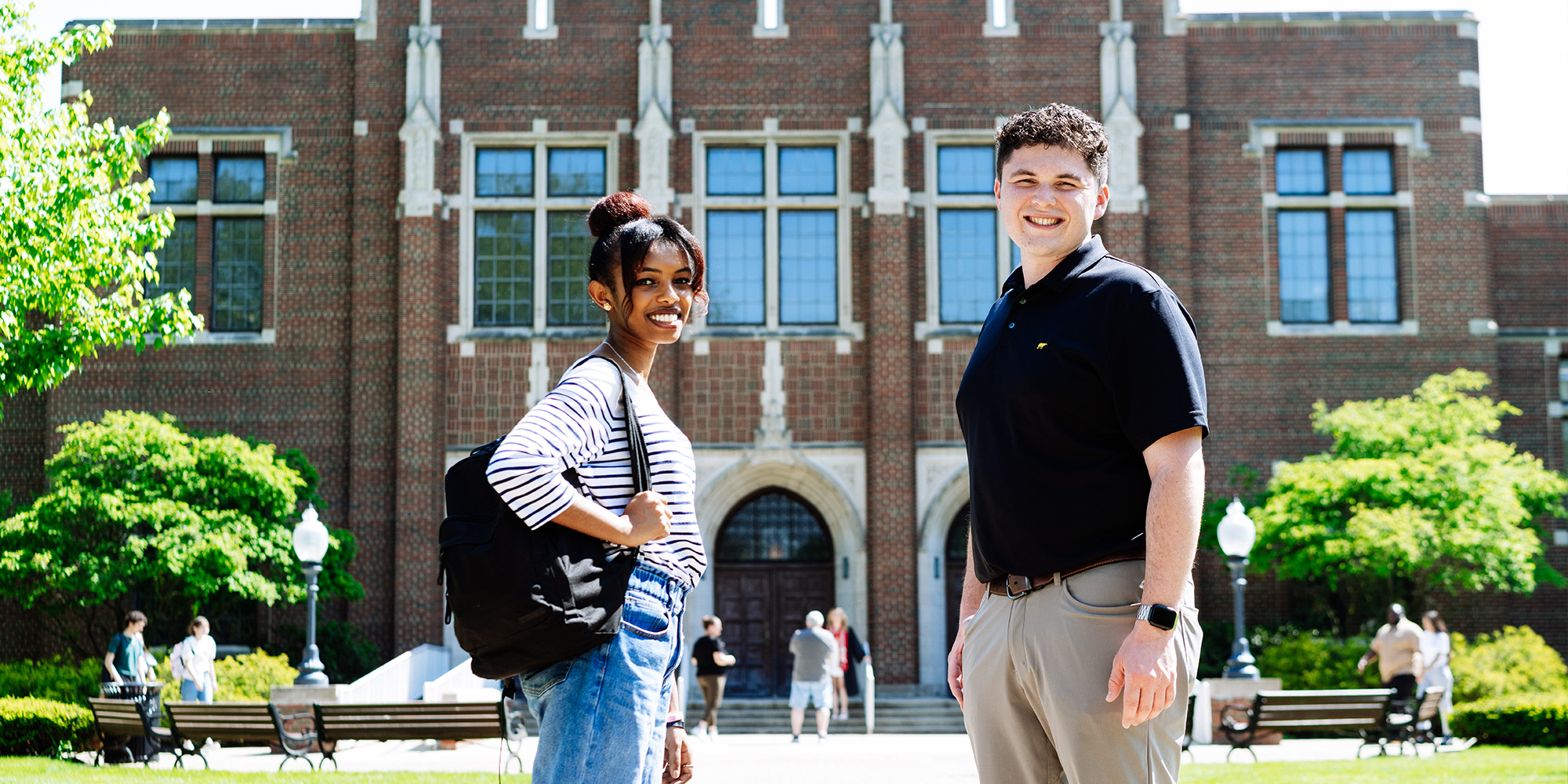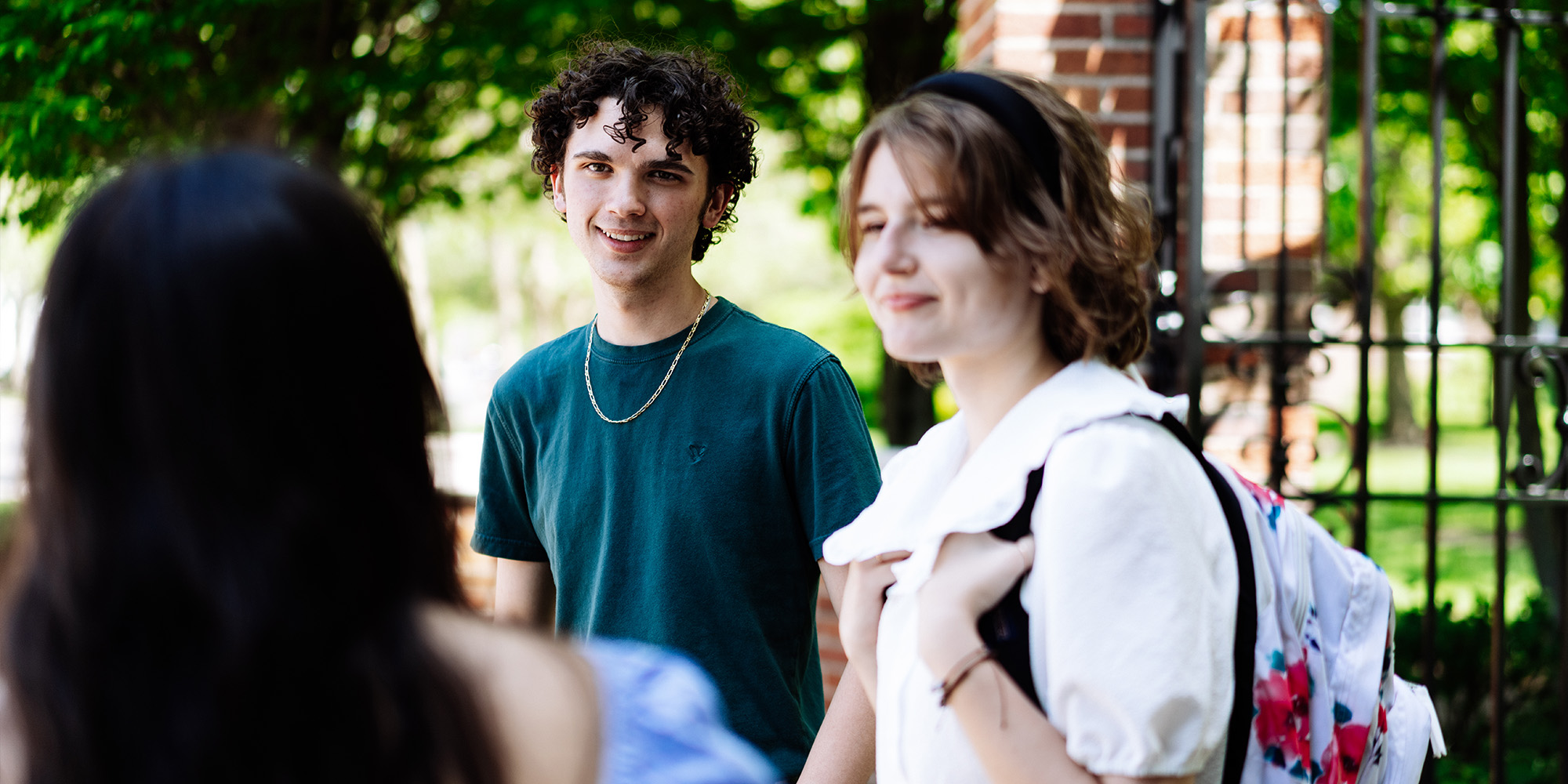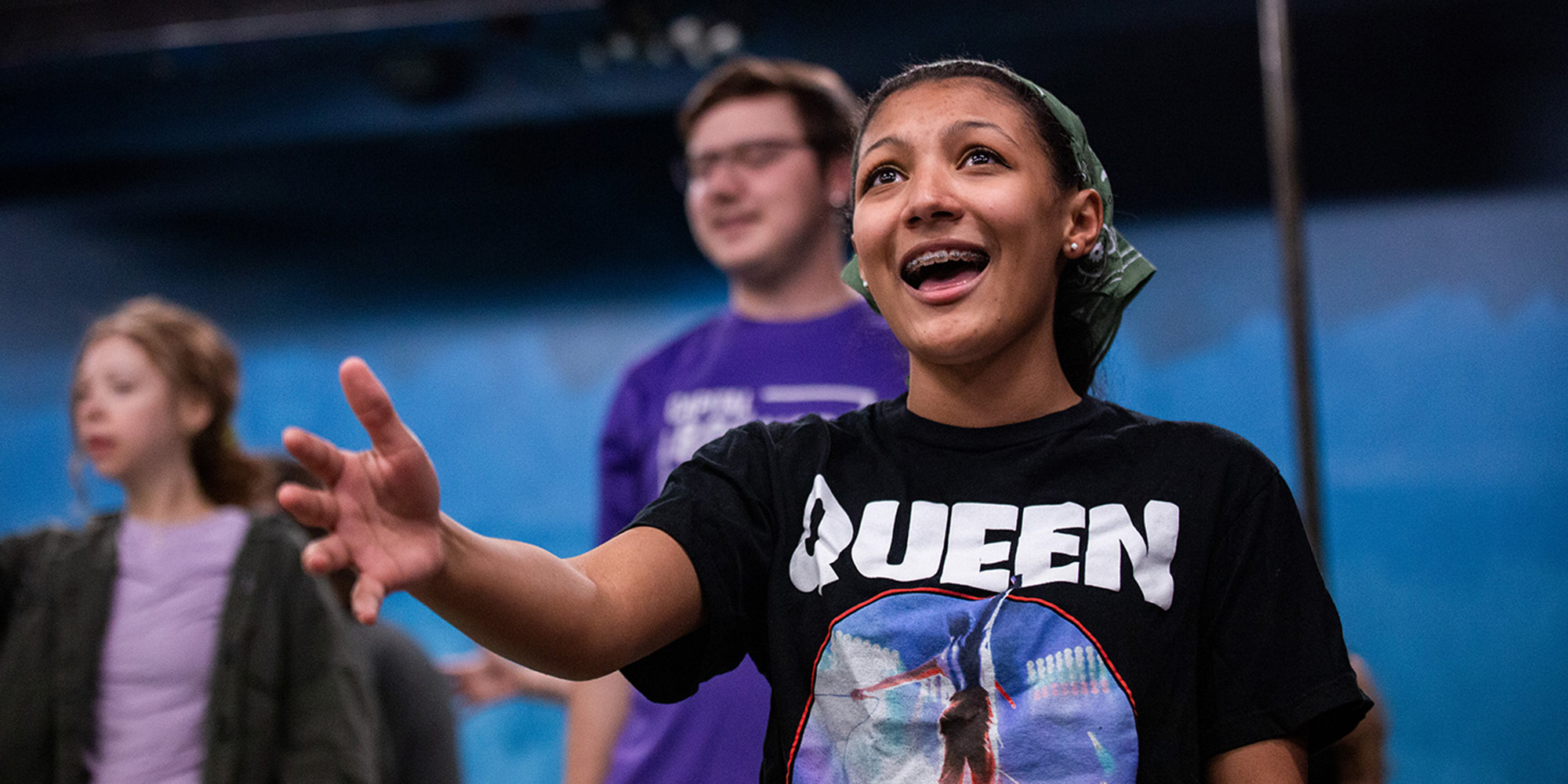Years of Theatre at Capital University
Student to Faculty Ratio
On Stage or Backstage from Day One
Explore this Program
As a Theatre Studies major, we supplement class instruction with pre-professional activities designed to give you personalized, hands-on learning opportunities. You can earn academic credit onstage while taking center stage in a University Theatre production or an improv show. Or if the backstage is your performance space, you can earn credit as you design, build, direct, or stage manage in our theatre or at an outside community venue. The department sponsors four main stage shows a season in the Cabaret Theater and auditions and participation in theatre events are open to the entire campus community. To round out your learning, the department sponsors a Reader’s Theatre Program and the Fat Tuesday Debutantes, our improvisational comedy group, and more. Most theatre students pursue internships and work with summer theatres during non-academic periods.
Capital’s own Cabaret Theatre is an intimate performance venue offering a black-box space located in the Harry C. Moores Student Union. The theatre seats 120 guests with the option for flexible seating and staging. The full theatre is equipped with a scene shop, control booth, and a production office/design lab. The spaces combine to provide students, faculty and the Capital community the opportunity to collaborate on a variety of theatrical productions, from musicals and contemporary drama, to Shakespeare and premiers of original work.
Our Theatre Studies graduates are active professionals in the world of theatre. So if your ambitions take you to Broadway or if your path keeps you local, there are numerous possibilities. Here is a sample of what our students have done after graduation:
- Stage managed for opera companies
- Director of Education, Columbus Children’s Theatre
- Toured with Madcap Puppet Theatre
- Opened in a Broadway musical
- Published plays
- Managed a scene shop
- Designed and costumed shows
- Worked at Schell Scenic Studio and Costume Specialists
- Served on the board of directors for a community theatre
Sample Classes
- Storytelling
- Performance Studies
- Acting
- Directing
- Stagecraft
- Scenic Design
“When I started at Capital, I had no idea where that journey would take me. I met countless kind, dedicated, hardworking, talented, highly intelligent people. TheCapFam is real. My very first film role was in a student film at Capital and it was in those student films and productions at the Cabaret Theater that I developed and sharpened my skills, both as an actor and as a director.”
-Cedric Gegel, Theatre Studies, Class of 2017

Request Information
Request Information
Schedule a Visit
Schedule a Visit
Apply to Capital
Apply Now